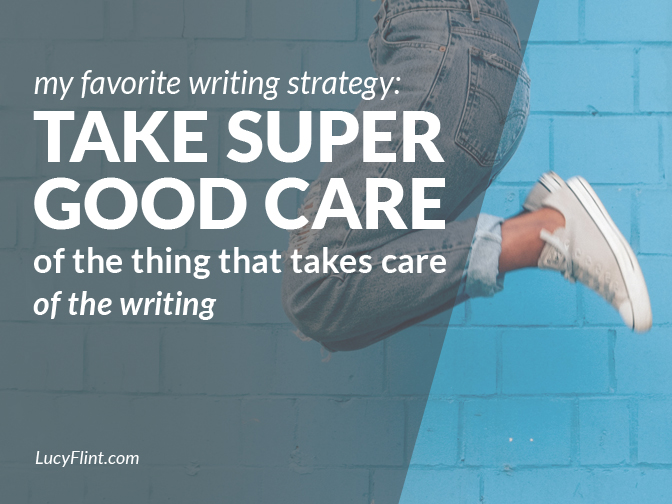This Is the ONE Thing You Need to Plan Your New Year
/Ohhhhh, lionhearts. I have to tell you about the book that has been revolutionizing my writing life lately.
It's The ONE Thing, by Gary Keller and Jay Papasan.
How do I even sum this up?? ... Oh wait. They did it for me. Check out their one-minute video.
Yes, it looks like a business book instead of, say, a writing book. But it's a quick, fun read, and a total game changer. Especially if you:
Struggle to decide what to focus on, while feeling overwhelmed by everything you need to do.
Feel like you're doing a ton of work and yet not moving very fast.
Want to make the most of the time that you have to spend... on anything.
I'm the type of girl who can, without much trouble, come up with a list of fifty things that I feel like I should be doing right now. Things for health, for writing, for reading, things to improve my living space, my cooking skills, my relationships...
I once, rather memorably, came up with a list of over one hundred things I wanted to do over the course of a three-day-weekend.
I also have a habit of working long hours, and then feeling like none of it made a difference.
It gets DISCOURAGING. Especially in a field like novel writing, where there are a bazillion skills we can be practicing, ways we can be improving our work, marketing techniques to learn for the future, classes and conferences and free downloads to try...
If you're like me, if you do this too, then you know that you can feel persistently overwhelmed, and yet undisciplined, and like you're never going anywhere. *cue the meltdown*
Hey. You and me, we don't need that kind of stuff in our lives!
Enter: This book. And its ability to mega-focus you on what matters.
The ONE Thing is all about figuring out what you need to do that will bring about the most change.
Or, as the authors Gary Keller and Jay Papasan put it so elegantly: "What's the ONE Thing I can do, such that by doing it everything else will be easier or unnecessary?"
They go on to explain that, for any work that you're doing, there are a variety of things (behaviors, skills, projects, outcomes) that will matter more than anything else. That will improve your results, more than anything else.
And of those that matter more, there's one thing that will matter the most.
Do that thing.
With exclusive focus. With the bulk of your time.
Focus on that ONE Thing.
...
Whoa, sorry, had to do a few cheerleadery high kicks there. This just gets me so dang fired up!
The whole book is about learning how to apply that question, what it means, what it doesn't mean, what it looks like, and how it can fit in every area of your life.
They also talk about six lies about productivity and how those lies can mess you up. ... I'm blushing a bit while I tell you this, but I have believed and been motivated by each of those lies. Persistently.
They're super common. For instance, ever heard that: You need to lead a disciplined life. Or that everything is about finding balance. Or that you can always just summon your willpower. Or that you can and should get everything crossed off your to-do list. Or that multitasking is the only way to get everything done. Or that you should aim small.
They blow up each of these lies, and show a better, more humane, and more productive way to operate.
WHAT.
No wonder I used to feel so exhausted and crazy! And no wonder my last few weeks have felt marvelous in comparison!
I'm using their goal-setting methods to focus on exactly what skill I should be learning for my writing (more on that in the next post!).
And I also narrowed down my health goals from about, oh, 400 ideas to just two, simple goals. And I can already tell a difference in how I feel.
... Time to do a few more high kicks!
I'm applying this thinking elsewhere too, and I already feel like my mind is clearer, my work is more productive, and I'm going in the direction I most want to go.
It's exciting.
Trust me: you want to read this book. Especially if you want to do big things next year. Especially if you want your time to make the biggest possible difference in your day and your work.
And especially if you want to move forward in a serious way—in any or every area of your life.
This is the next book on your reading list, okay? Get it for yourself for Christmas.
It just might transform your 2016.
















